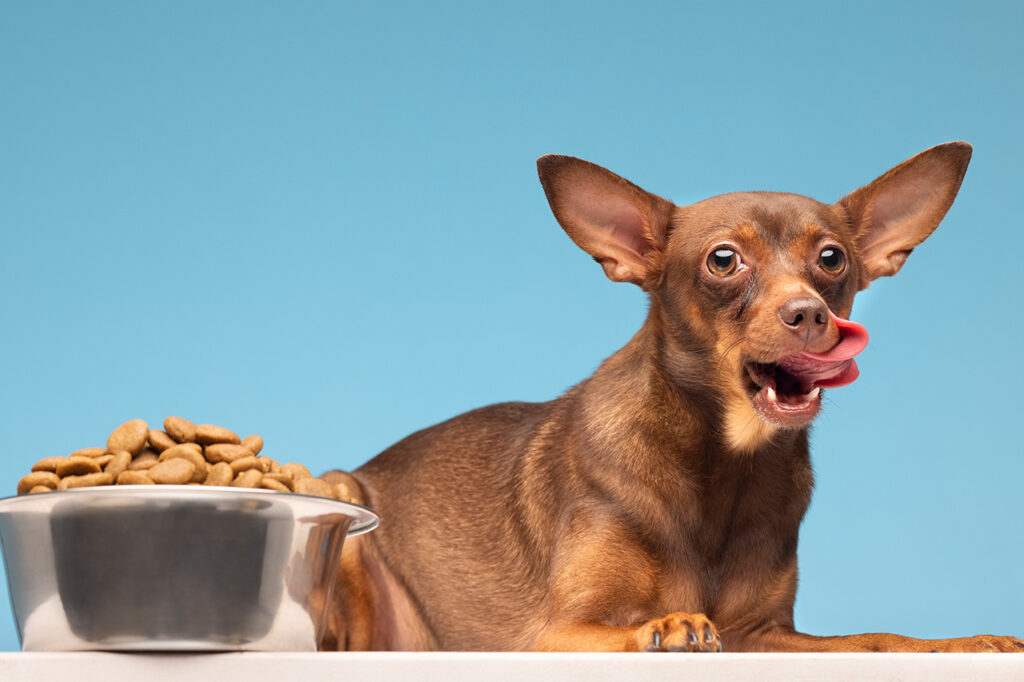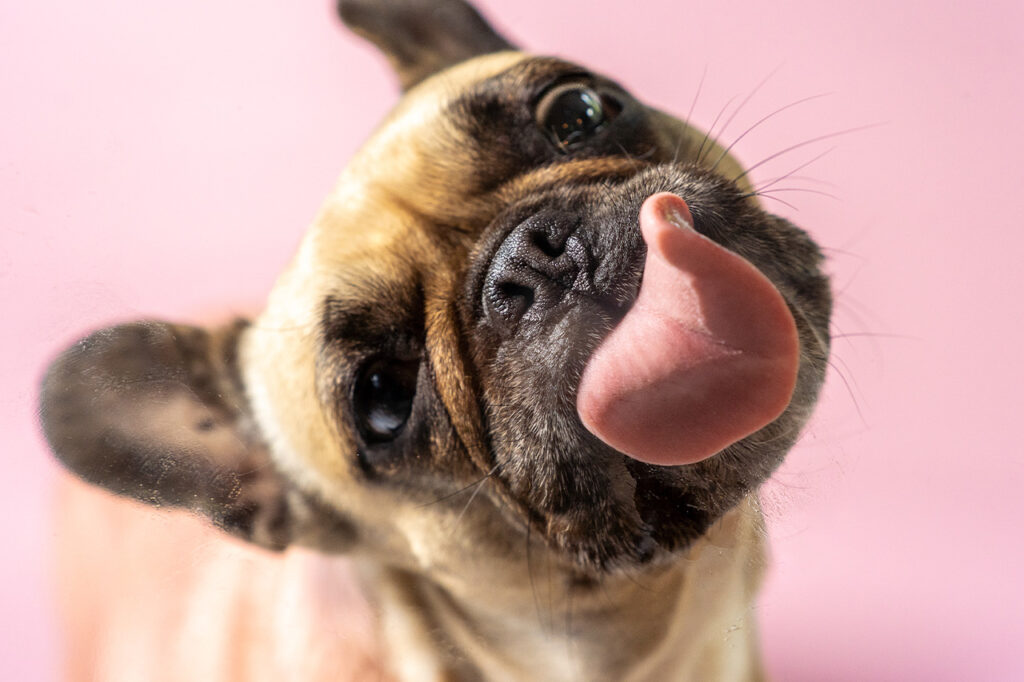Dogs communicate in many ways beyond barking or wagging their tails. One subtle but meaningful gesture is lip-licking. Although it might seem like a simple reflex, lip-licking can reveal a lot about a dog’s emotional state and physical well-being. In this guide, we’ll explore the reasons dogs lick their lips, when it’s a normal behavior, and when it may signal a problem.
🧐 What Does It Mean When a Dog Licks Its Lips?
Lip-licking in dogs can have a variety of causes, ranging from benign to concerning. Paying attention to the context in which this behavior occurs can help you better understand your pet’s needs.
1. Sign of Stress or Anxiety
One of the most common reasons dogs lick their lips is as a response to stress. This behavior is part of their calming signals—subtle body language dogs use to diffuse tense situations.
Common Stress Triggers:
- Loud noises (thunderstorms, fireworks)
- Unfamiliar people or animals
- Visits to the veterinarian
- Changes in the household
If you notice your dog licking its lips in these situations, they may be feeling anxious or overwhelmed.
What to Do:
- Provide a safe, quiet space for your dog to retreat.
- Use positive reinforcement to associate stressful situations with rewards.
- Avoid punishment, as it can increase anxiety.

2. Anticipation of Food
Dogs naturally lick their lips when they expect a tasty treat. This is a normal reflex triggered by the anticipation of food.
Signs of Anticipation:
- Lip-licking when you prepare meals
- Salivating around feeding times
What to Do:
- Maintain a regular feeding schedule.
- Avoid feeding from the table to prevent excessive lip-licking for attention.
3. Health Issues
Excessive lip-licking can sometimes indicate an underlying health problem. If your dog licks its lips frequently and without an obvious cause, it’s important to monitor for other symptoms.
Potential Health Concerns:
- Nausea: Dogs may lick their lips when they feel nauseous or have digestive discomfort.
- Dental Problems: Oral pain from gum disease, broken teeth, or infections can trigger excessive lip-licking.
- Allergies: Irritation from food or environmental allergens can cause lip-licking as a response to itchiness or discomfort.
What to Do:
- Observe for other symptoms like vomiting, bad breath, or pawing at the mouth.
- Schedule a veterinary check-up if the behavior persists.

4. Submissive or Appeasement Gesture
In social situations, dogs may lick their lips as a sign of submission or to avoid conflict. This behavior is especially common when interacting with more dominant dogs or humans.
Signs of Submission:
- Avoiding eye contact
- Lowering their body posture
- Tucking their tail
What to Do:
- Approach your dog calmly and avoid intimidating postures.
- Reward confident, relaxed behavior to build trust.
📊 When Should You Be Concerned?
While occasional lip-licking is normal, persistent or intense licking can be a red flag. Here are some situations where professional evaluation is needed:
- Frequent, Unexplained Licking: If lip-licking occurs regularly without an apparent reason.
- Paired with Other Symptoms: Watch for vomiting, lethargy, excessive drooling, or changes in appetite.
- Behavioral Shifts: If your dog becomes withdrawn, aggressive, or fearful.
🐕 How to Respond to Your Dog’s Lip-Licking
If your dog’s lip-licking seems out of the ordinary, here are steps to address it:
- Identify the Trigger: Observe when and where the behavior occurs to pinpoint the cause.
- Assess Health Concerns: Rule out medical issues through a veterinary examination.
- Reduce Stress: Create a calm environment and avoid situations that cause anxiety.
- Positive Reinforcement: Reward your dog when they display calm, confident behaviors.
📌 Final Thoughts
Lip-licking is a common canine behavior with many possible explanations. By understanding the context and recognizing signs of distress, you can better respond to your dog’s needs. Whether it’s a simple sign of hunger or an indicator of anxiety, being attentive to your dog’s body language fosters a happier, healthier relationship.
Always consult a veterinarian if you’re unsure about any behavioral changes to ensure your furry friend’s well-being. 🐾
Enjoyed this post? Visit timmypets.com for more pet care tips, stories, and expert advice. Follow us on social media to stay connected and never miss an update!


